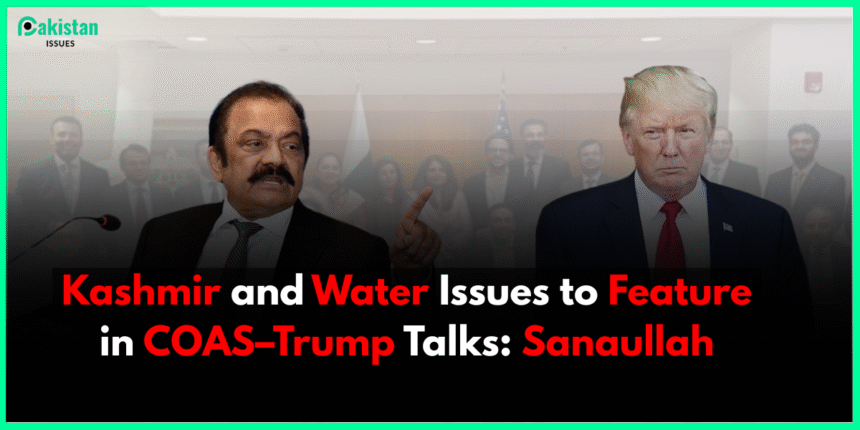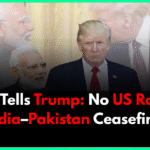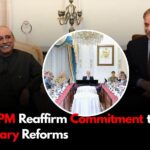Field Marshal Asim Munir, Pakistan’s Chief of Army Staff, is going to meet with former U.S. President Donald Trump at the White House to talk about issues including Kashmir and water concerns between countries. Rana Sanaullah, the Interior Minister of Punjab, said that Pakistan wants to talk about these important issues.
The Bigger Picture of the Talks
The nature of this meeting creates a rarity and special situation in which Pakistan’s military Chief has the chance to meet with a former US President in person. The acute stresses in the area are evident with the significant number of incidents along the Indo-Pak border, water sharing disputes, and transportation issues amongst them. President Trump has certainly emphasized his willingness to help with peace, with operative arrangements to implementing cease-fire and anti-terrorism operations, like Pakistan’s Operation Sindoor before this meeting.
Why Water Is Important
Sanaullah from Punjab stressed that Pakistan is becoming more worried about India’s purported use of river controls, such dam operations, as a way to gain geopolitical power. He said that stopping or limiting the flow of water was the same as “water warfare.” Pakistan depends a lot on the rivers in the Indus Basin, thus any move by India alone might have a big effect on the country’s food security and people’s jobs.
After India said it will stop or change the flow of water under the Indus Waters Treaty, Pakistan accused New Delhi of using water as a weapon. The meeting coming up will focus on that strategy.
Kashmir: A key point in diplomacy
The fight over Kashmir is back in the news. Pakistan wants to make Kashmir not only a problem between India and Pakistan, but a regional security danger that needs the world’s attention. This is because both countries have recently exchanged fire over their borders. Trump has said in the past that he would be willing to help out diplomatically, and Pakistan sees these talks as a chance to get third parties involved again, even though India is still publicly against it.
Strategic Undertones of the COAS–Trump Conversation
Having this conference in the White House is a symbolic change that raises military diplomacy to the highest levelPakistani leaders believe that Trump’s being in the country draws attention to issues that are often neglected in ordinary diplomatic channels. Khawaja Asif, the Defence Minister, referred to the meetings as “a momentous occasion,” which, if you are keeping track, might lead to collaboration between the two countries in areas like commerce, fighting terrorism, and stabilizing the region.
Important things to remember
Will Trump openly support Islamabad’s assertions about manipulating water and mediating in Kashmir?
Will international media and think tanks repeat Pakistan’s framing, or will they see it as just another geopolitical argument?
What will happen next? Will there be new diplomatic channels, UN involvement, or special advocacy efforts?
Last Thought
It would seem implausible that an informal talk between a Pakistani general and a former U.S. president will change world politics. But by explicitly talking about Kashmir and water difficulties, with Trump’s attention, the meeting goes against the usual ways of talking to each other. It shows that Pakistan wants to change things from just bilateral annoyances to serious threats to the region.
Success depends on follow-up that lasts, not on symbolic positioning. Pakistan needs to work with the UN, international water commissions, and track-two diplomacy channels to make sure that the media sees them.
In short, Field Marshal Munir’s trip to the White House could be a turning point that raises issues not only about Kashmir and rivers, but also about how new stories can change the way people talk about things around the world.
If you want a shorter version that works for media summaries or social media, let me know.










